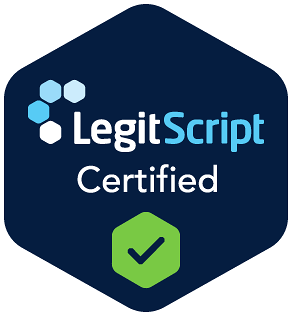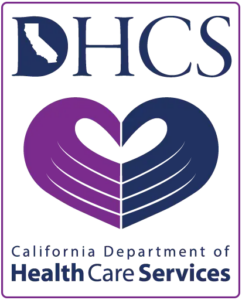Recovery doesn’t have to mean putting your entire life on hold. Outpatient addiction treatment near me offers a practical path forward that works around your existing commitments.
We at Surf City Detox understand that everyone’s situation is different. The right treatment program should adapt to your schedule, not force you to abandon everything you’ve built.
Understanding Outpatient Addiction Treatment Options
Three Levels Match Your Recovery Needs
Outpatient addiction treatment offers three distinct intensity levels, each designed for different stages of recovery and life circumstances. Intensive Outpatient Programs require 9-20 hours weekly and work perfectly for people who step down from residential care or those with moderate addiction severity.
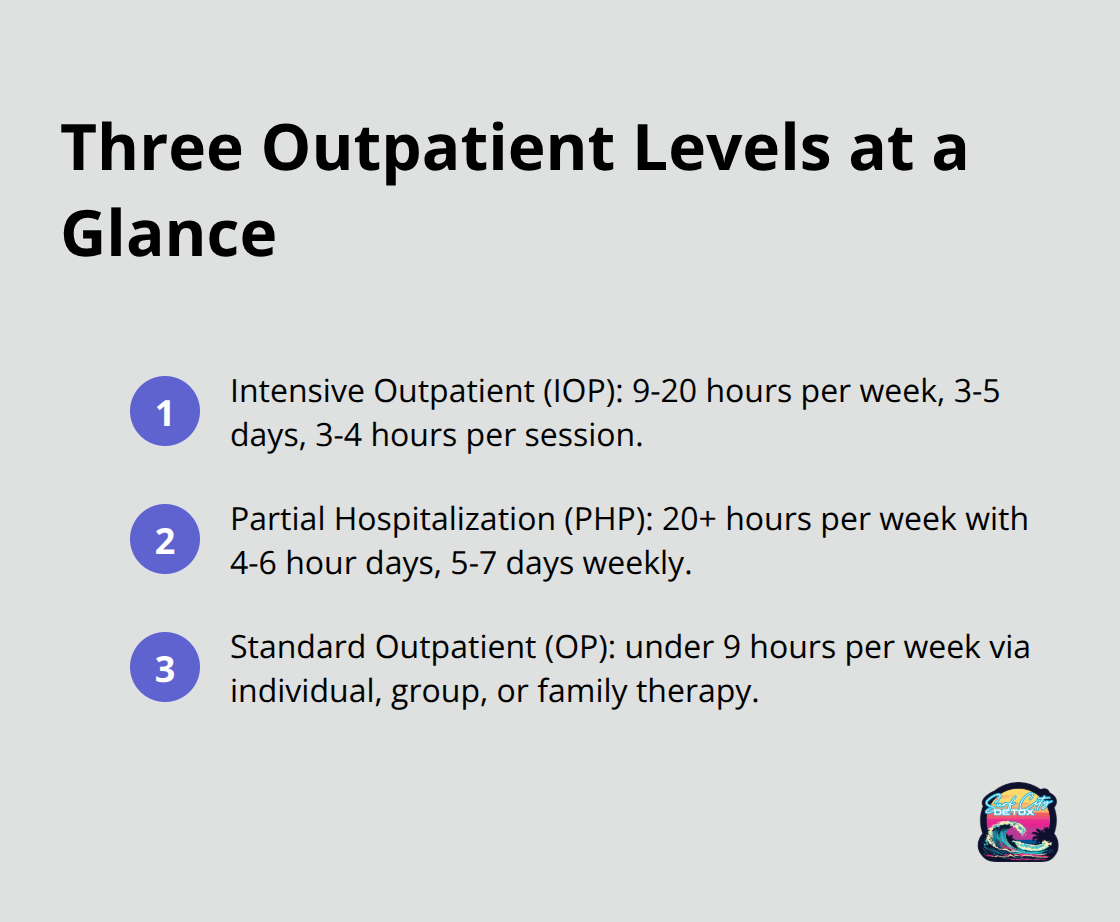
These programs typically run three to five days per week for three to four hours per session, which allows you to work part-time or handle essential responsibilities.
Partial Hospitalization Programs demand 20+ hours weekly but offer the most comprehensive outpatient care available. You attend treatment five to seven days weekly for four to six hours daily and receive nearly residential-level support while you sleep at home. Standard outpatient care involves fewer than 9 hours weekly through individual therapy sessions, group sessions, or family therapy. This works best for people with mild substance use issues or those who maintain long-term recovery.
Medical Support Transforms Success Rates
Medication-Assisted Treatment transforms outpatient recovery success rates dramatically. The Substance Abuse and Mental Health Services Administration reports that FDA-approved medications like buprenorphine, methadone, or naltrexone combined with therapy reduce relapse rates significantly. Medical supervision in outpatient settings includes regular physician check-ins, prescription monitoring, and side effect management (which addresses withdrawal symptoms and reduces cravings). This medical component prevents dangerous complications during early recovery phases.
Real Environment Practice Builds Stronger Skills
Outpatient treatment forces you to practice recovery skills in your actual environment rather than a protected facility. You face real triggers, relationship dynamics, and daily stressors while you have therapeutic support to process these challenges. Group therapy sessions become particularly powerful because participants share current, real-life situations rather than theoretical scenarios. This immediate application of coping strategies, stress management techniques, and relapse prevention tools creates stronger, more durable recovery foundations than isolated residential settings provide.
The flexibility of outpatient programs extends beyond scheduling-it fundamentally changes how you approach recovery by integrating treatment into your existing life structure.
Benefits of Choosing Outpatient Treatment Over Residential Care
Financial Reality Makes the Choice Clear
Outpatient addiction treatment offers significant cost advantages, with inpatient rehab facilities costing between $10,000 and $30,000 on average for a 30 day program. Insurance coverage through the Affordable Care Act mandates substance abuse treatment, which makes outpatient programs accessible for extended periods without financial devastation. Most employers provide health plans that cover 70-90% of outpatient services, while residential care often hits annual benefit caps within weeks. The National Institute on Drug Abuse confirms that longer treatment duration correlates directly with better outcomes (this makes affordable outpatient care the practical choice for sustained recovery success).
Work and Family Connections Strengthen Recovery
Employment maintenance during treatment prevents the financial stress that triggers relapse. Outpatient programs schedule around work shifts, school hours, and childcare needs, with evening and weekend options available at most facilities. Parents can continue school pickups, attend soccer games, and maintain family routines that provide stability during recovery. The Journal of Substance Abuse Treatment found that people who maintain work and family responsibilities during treatment show 60% higher long-term sobriety rates than those who disconnect from their support systems.
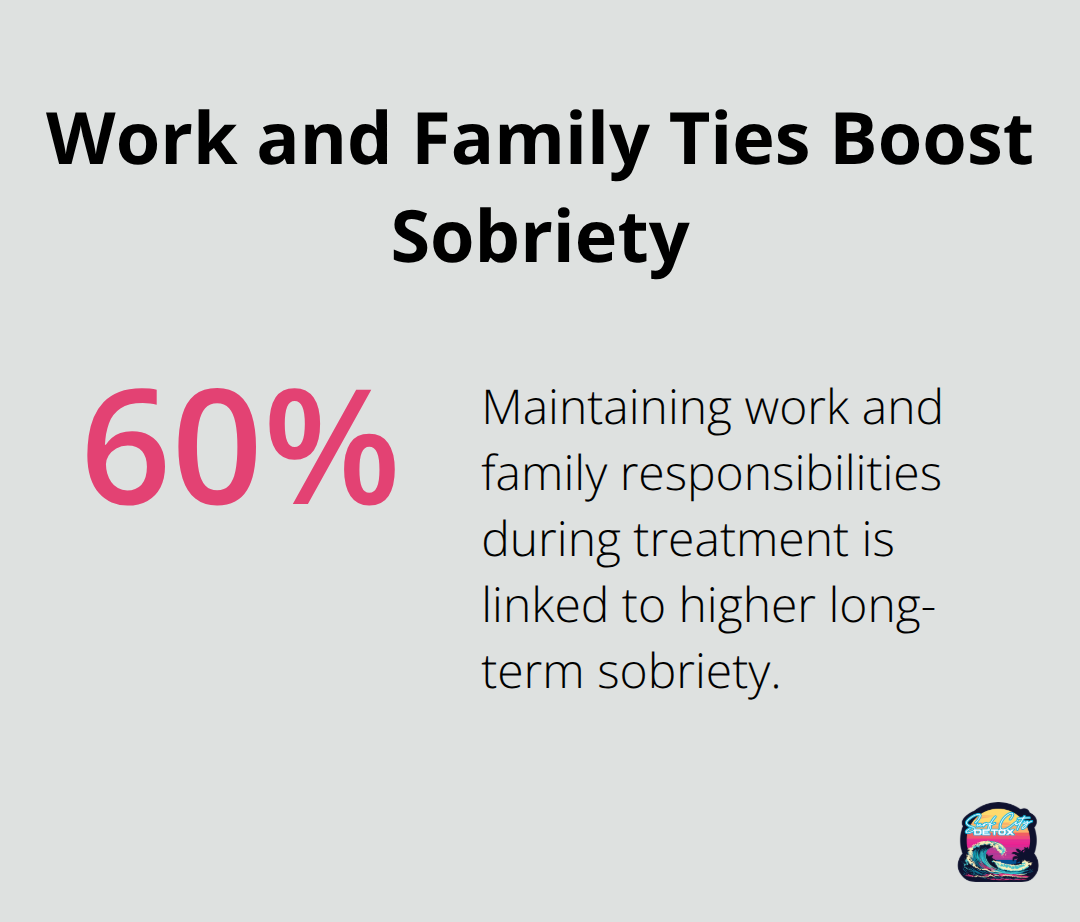
Real-World Skills Beat Protected Environment Training
Outpatient treatment forces you to practice coping strategies while you face actual triggers, relationship conflicts, and daily stressors rather than artificial residential scenarios. You learn to navigate workplace stress, family dynamics, and social situations with immediate therapeutic support to process these experiences. This real-time application builds stronger neural pathways for healthy responses compared to theoretical discussions in isolated settings (recovery skills developed in your actual environment transfer seamlessly to long-term sobriety). Residential treatment often creates a recovery bubble that collapses when you return to normal life pressures and responsibilities.
The key to successful outpatient treatment lies in selecting a program that matches your specific needs and circumstances, which requires careful evaluation of available options in your area.
Finding the Right Outpatient Program Near You
Credentials Separate Real Treatment from Marketing Hype
The Joint Commission accreditation and state licensing represent the minimum standards you should accept from any outpatient facility. CARF International accreditation goes further by evaluating actual treatment outcomes and client satisfaction scores rather than just paperwork compliance. Ask for specific success rate data measured at six months and one year post-treatment, not vague testimonials or marketing claims. The Substance Abuse and Mental Health Services Administration requires facilities to track completion rates, employment status, and relapse statistics. Programs that refuse to share concrete numbers hide poor performance behind marketing language.
Schedule Flexibility Determines Long-Term Success
Evening programs that run from 6 PM to 9 PM work best for full-time employees, while morning sessions from 8 AM to 11 AM accommodate parents with school-age children. Weekend intensive sessions allow professionals to maintain weekday work commitments without disclosure concerns. The National Institute on Drug Abuse confirms that treatment enables people to counteract addiction’s disruptive effects on their brain and behavior and regain control of their lives (which makes scheduling compatibility more important than program reputation). Programs that offer both in-person and telehealth options provide backup when work travel, illness, or family emergencies arise.
Dual Diagnosis Capability Prevents Treatment Failure
Anxiety disorders affect 40% of people who enter addiction treatment, while depression impacts 30%, according to the Journal of Clinical Psychiatry. Programs without psychiatric services on-site create dangerous gaps where mental health symptoms sabotage recovery progress.
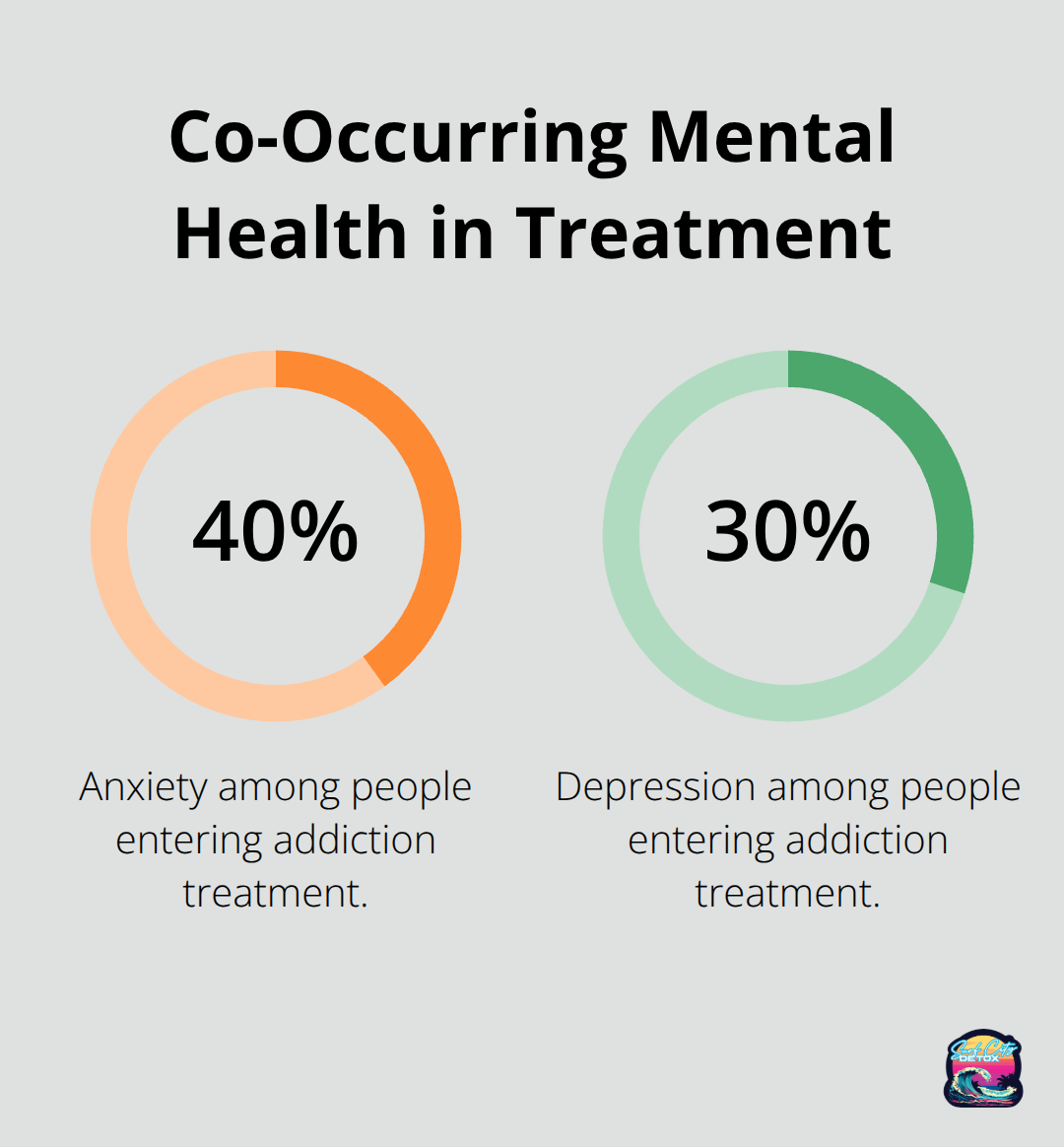
Look for facilities with licensed psychiatrists, not just counselors with addiction training. Medication management for conditions like ADHD, bipolar disorder, or PTSD requires medical expertise that general addiction counselors cannot provide. Integrated treatment plans that address both addiction and mental health simultaneously reduce relapse rates by 50% compared to sequential treatment approaches.
Insurance Coverage Affects Your Treatment Options
Most major insurance plans now cover outpatient addiction treatment under the Affordable Care Act’s mental health parity requirements. Verify that your chosen program accepts your specific insurance plan and understand your copayment responsibilities before you start treatment. Some facilities require upfront payment and reimburse you later (which creates financial barriers for many people). Programs that work directly with insurance companies eliminate this burden and allow you to focus on recovery rather than payment logistics.
Final Thoughts
Successful outpatient recovery requires three essential elements: program flexibility that matches your schedule, comprehensive dual diagnosis support for mental health conditions, and insurance coverage that makes treatment financially sustainable. The National Institute on Drug Abuse confirms that treatment duration directly impacts success rates, which makes affordable outpatient programs the practical choice for long-term recovery. People who maintain work and family responsibilities during treatment achieve 60% higher sobriety rates than those who disconnect from their support systems.
Outpatient addiction treatment near me offers the logical starting point for most people who seek recovery without abandoning their existing responsibilities. Research demonstrates that real-world skill practice during treatment creates stronger foundations than protected residential environments provide. The key lies in honest assessment of your needs and commitment to change rather than waiting for the perfect moment to begin.
We at Surf City Detox provide medically supervised detox and dual diagnosis care in Huntington Beach. Our facility offers personalized care that addresses the root causes of addiction through evidence-based therapy approaches. Recovery becomes possible when you find comprehensive treatment that fits your life rather than forces you to abandon everything you’ve built.

